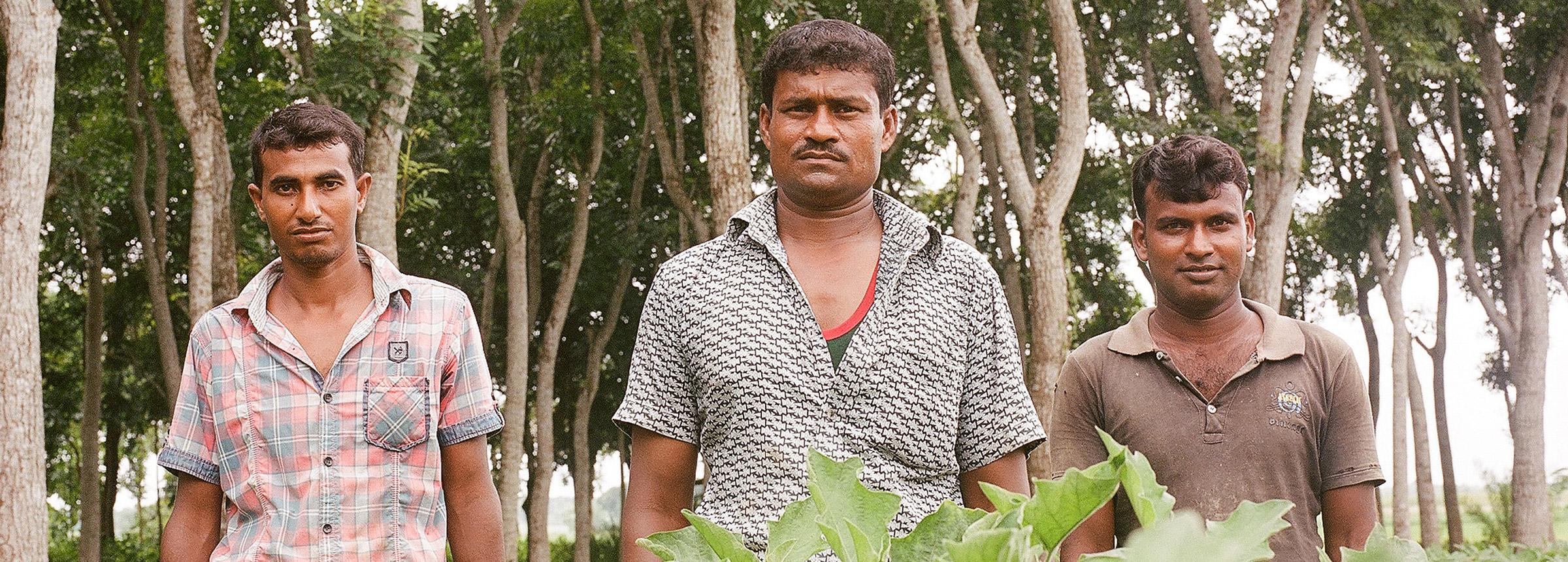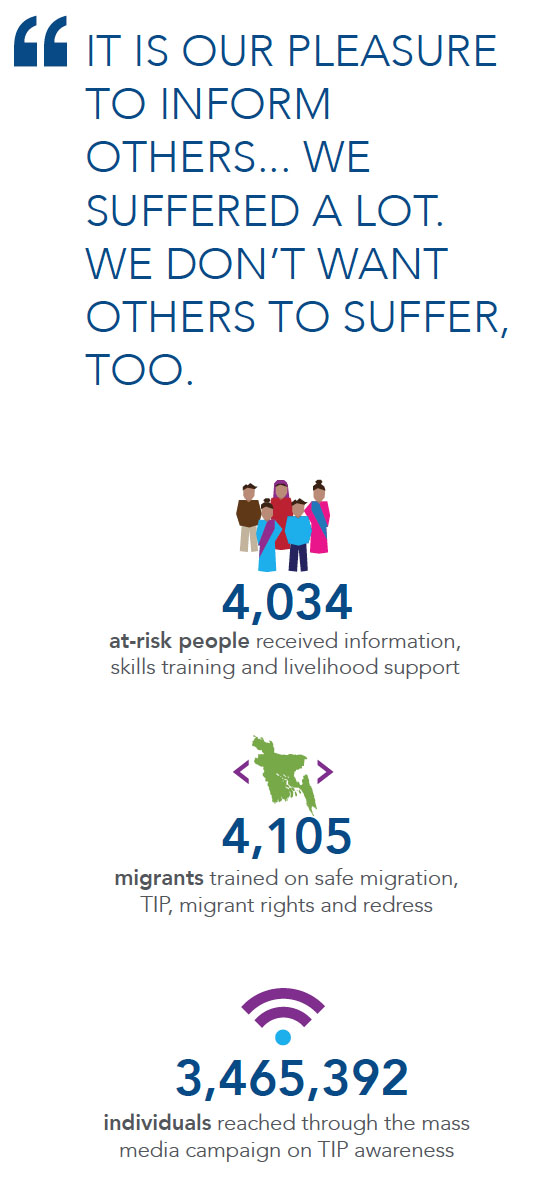
Local Heroes
 PROJECT NAME: Bangladesh Counter Trafficking-in-Person (BC/TIP)
PROJECT NAME: Bangladesh Counter Trafficking-in-Person (BC/TIP)
SYNOPSIS: Mobilizes and coordinates the actions of governments, NGOs, citizens and community leaders to support and empower survivors, increase the effectiveness of prosecution, and engage all layers of society to end human trafficking.
YEARS ACTIVE: 2014-2020
FUNDER: USAID
Looking at Saiful and his best friend Kalam, it’s hard to imagine what they endured — and survived. “I thought I was trapped forever,” Saiful says. “I thought I would always be a slave.” In late 2014, a man named Jahid told Saiful and Kalam about a work opportunity in Malaysia. The men, who were eking out a living as day laborers, saw the offer as a way out. When they finally reached Malaysia, after paying Jahid thousands of dollars in fees for visas, medical exams and tickets, Saiful and Kalam realized they had been tricked. They were just two of the more 1,531,300
Bangladeshis — almost one percent of the nation’s population — estimated to be living in modern-day slavery.
The two made a run for freedom, but the Malaysian police quickly caught and jailed them for being in the country illegally. After three months and more money (scraped up by their families, as it was earlier), Saiful and Kalam were released from jail and returned to Bangladesh in late 2015.
When they arrived in their home district, Saiful and Kalam learned about Winrock’s Bangladesh Counter Trafficking in Persons (BC/TIP) project, funded by USAID. Through BC/TIP
and one of its local partners, Saiful and Kalam took a livelihood skills class and an entrepreneurship training program. There they met Mahmud, who had also been in forced labor and jailed in Malaysia. The men bonded over their shared experiences, and the entrepreneurship class gave them an idea. Though their land had been sold to pay the trafficker’s fees, they were young and strong. This time they would hatch a real escape plan — one that relied not on leaving but on
staying. They would start a farming enterprise together.
That was a year ago. Now the three men have teamed up to lease four fields, brimming with beans and brinjals. After paying rent and other expenses they’re clearing about $400 a month — more than they’d make working abroad. Believe it or not, “many trafficked individuals want to go back because they make so little here,” says James Baidaya, a BC/TIP project officer. “But these three are working together and skipping the middleman, so all the profits belong to them.”
Thanks to the vegetable sales, the group’s monetary debts are being repaid now, and the men are paying it forward another way, too. Through BCTIP, Saiful, Kalam and Mahmud learned of ANIRBAN, an organization that provides information and support to trafficking survivors. As ANIRBAN members, the men speak to groups of villagers and students, warning them of the ruses traffickers will assume, sharing the basics of safe migration — and telling their own stories. “It is our pleasure
to inform others about safe migration,” Mahmud says. “We suffered a lot. We don’t want others to suffer, too.”
